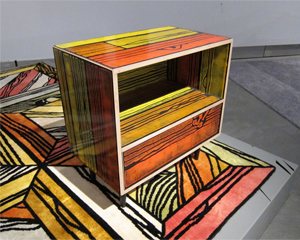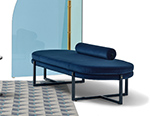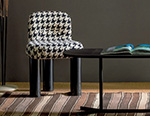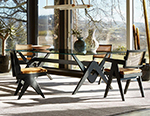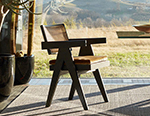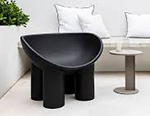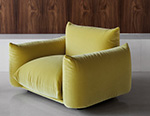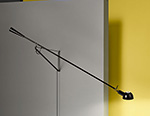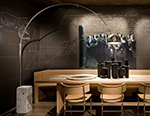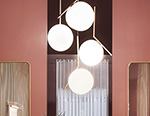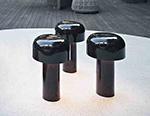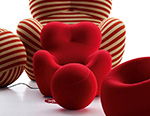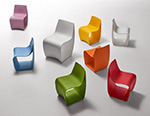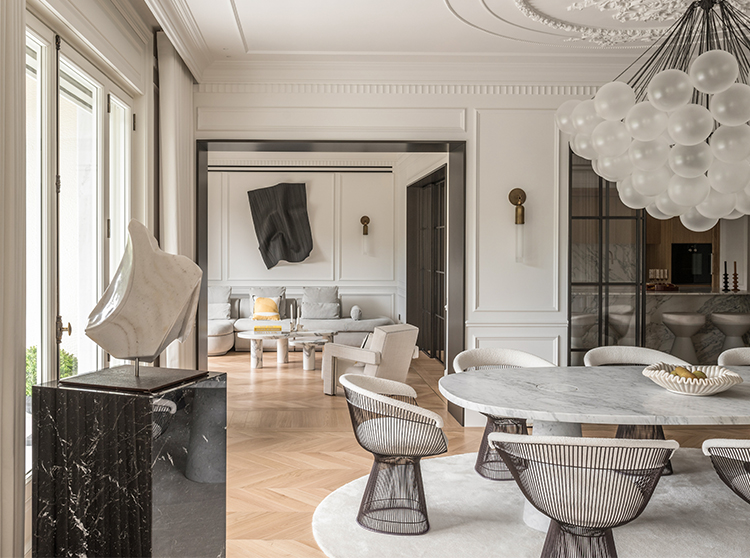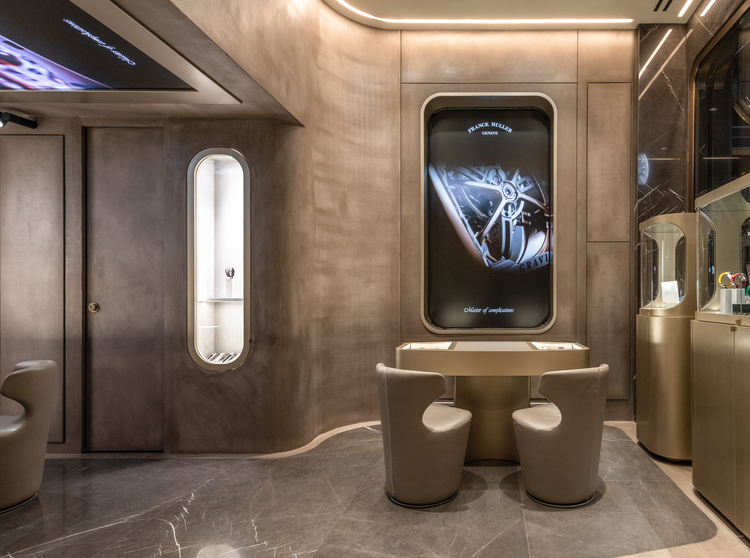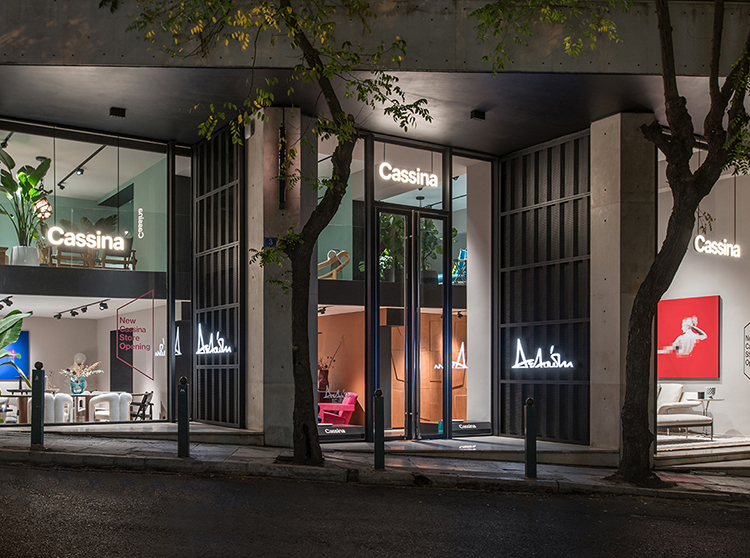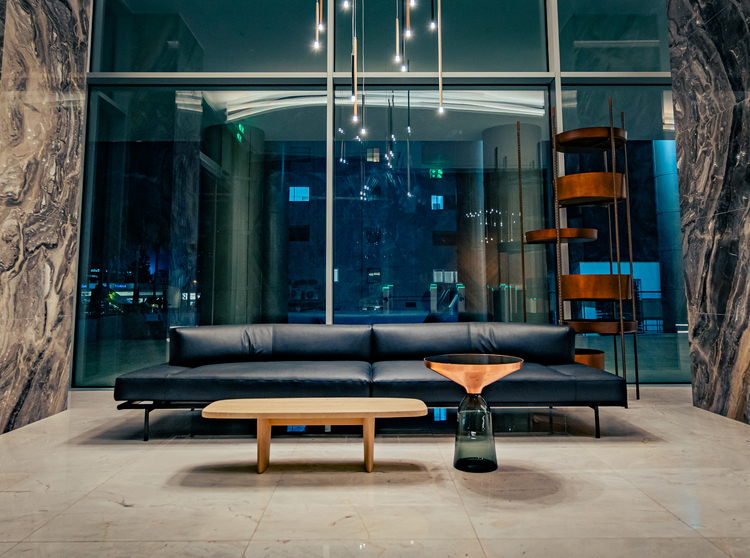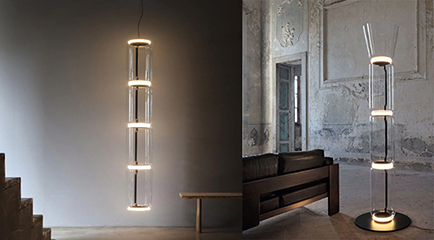In 2010, the Japanese fashion designer Issey Miyake first presented a ground-breaking collection called 132 5. Working closely with a computer scientist, mathematical algorithms were designed into 3D shapes that are then heat-pressed into two-dimensional forms. When these garments are folded, they resemble origami creations. When they are unfolded and put on, dimensional shapes pop-out and protrude from the body.
Molo's cardboard slinky furniture is delivered flat; you then unfold it in one fluent movement into a beautiful piece of lounging furniture or a side table. These are simple examples of the pop-up phenomenon.
With the development of the 3D printer, for example, designers can quickly produce spatial sketches. This demands new insights from both designer and the business community. Laws of nature no longer hold this generation in their grip. Armed with technological developments, today's designers are now able to allow themselves to be unrestricted by dimensions.
Lidewij Edelkoort, trend forecaster, designer and visionary from Paris has developed an exhibition concept for MOTI, Museum of the Image in Breda: it is called The Popup Generation, Design between dimensions.
"Young generations born with and behind the screen live in a shadow area, a no man's land between the second and third dimension that they wish to connect. This popup generation moves easily from 2D to 3D and back again as if they do not even notice that there is a difference. The brain is trained to see volume in a flat sketch and to discover a structure behind the volume found in an architectonic drawing."
In the exhibition The Popup Generation, the former director of thee Design Academy Eindhoven presents designers and artists who, in collaboration with industry from the province of Brabant, are doing research into new ways of working and techniques.
At the start of the 21st century, the world is a cacophony of different cultures, destitute economies, innovative mass media and hyper technology. Old structures disappear and are replaced by a longing for synergy that flourishes with the new worldwide means of communication. In the practice of design, disciplines merge and worlds are linked together; 2D & 3D, analogue & digital, culture & capital, science & art, nature & technology and local & global.
"Nestled in that no man's land, a new era with new work is being prepared; artistic and elastic statements that without a doubt are shifting between all disciplines and all dimensions."
In both the exhibition and the book entitled The Popup Generation, Design between Dimensions, Edelkoort has selected designers from the Popup Generation who make transience and the immaterial visible; as an apparition; from pop-up shops and museums and guerilla brands to moving merchandising. Moving in the sense of motion and action, but also in the sense of emotional and aimed at the senses.
The dynamism of pop-up is reflected in the exhibition: its flexibility and versatility is a source of inspiration for many disciplines. Visitors will experience multi-media installations, see films and performances that become clocks, chairs, graphics, songs and lights, meet new characters animated by technology, witness computer programmes that make books magically come to life, and encounter cardboard and textiles that pop-up into animals, mushrooms, fashion, furniture and masks. Roles shift, connect and merge to the extent that there seems to be only one universal and elastic discipline that pops up, moving constantly between dimensions, and possibly trying to define a new one.
The Pop-Up Generation by Lidewij Edelkoort
Museum Of The Image, Breda
December 13, 2011 - April 12, 2012
Participating designers:
Kiki van Eijk (NL), Catharina van Eetvelde (BE), Rodrigo Solorzano (MEX), Anthony Kleinepier (NL), Tord Boontje (NL), Bartosz Mucha (PL), Jaime Hayon (SP), Studio Job (NL), Niels Meulman (NL), Anna Garforth (GB), Carla Fernandez, Niels Hoebers (NL) Eric Ku (USA), Camile Scherrer (CH), Eley Kishimoto (JP), Carolina Wilcke (BE), Issey Miyake (JP), Laurens Manders (NL), Front (SE), Molo (CA), Richard Woods (GB) and Neozoon.
